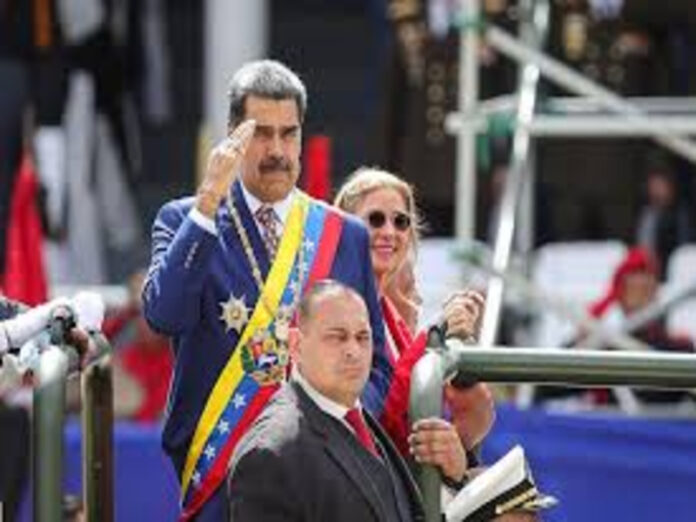Trump’s Order Grants The CIA New Authority In Venezuela To Combat Narco-Terrorism
Thursday, October 16, 2025, 7:00 A.M. ET. 4 Minute Read, By Jennifer Hodges: Englebrook Independent News,
WASHINGTON, DC.- In a dramatic turn for U.S. foreign policy, President Donald Trump has authorized the Central Intelligence Agency to conduct covert operations in Venezuela, a move signaling a deeper and more aggressive strategy to weaken the government of President Nicolás Maduro.
According to senior administration officials speaking on record Wednesday, the authorization grants the CIA expanded latitude to “disrupt narcotics and transnational criminal networks” that Washington claims are tied to elements of the Venezuelan regime. The directive follows months of heightened military activity by U.S. forces in the Caribbean, where air and naval assets have been deployed since late summer as part of what the administration calls its “Counter-Narcotics and Anti-Terror Initiative.”
The Official Justification;
President Trump defended the decision during an impromptu press conference at the White House, describing the operation as “a necessary step to protect the American people.”
“We’ve seen the Maduro cartel use Venezuela as a hub for narcotics and human trafficking,” Trump said. “That ends now. The CIA has my full authority to act.”
The administration has previously accused Maduro and senior Venezuelan military figures of enabling transnational gangs, including the violent Tren de Aragua network, to smuggle narcotics and migrants through the hemisphere. However, multiple intelligence analysts and counter-narcotics experts note that U.S. Drug Enforcement Administration data identify Mexico as the predominant source of fentanyl entering the United States, not Venezuela.
Escalating Operations In The Caribbean;
The CIA authorization follows several recent U.S. strikes on vessels in international waters off Venezuela’s northern coast. The Pentagon claims the targeted ships were carrying narcotics and weapons destined for criminal syndicates in Central America. President Trump announced earlier this week that one such strike killed six individuals whom he described as “narcoterrorists linked to Maduro’s inner circle.”
Independent verification of those claims remains limited. Venezuelan officials have denounced the attacks as “acts of piracy” and vowed to defend national sovereignty “by any means necessary.”
Legal And Diplomatic Fallout;
Under U.S. law, the president must notify select members of Congress when authorizing covert action. Lawmakers from both parties have demanded greater transparency, with several senators warning that expanding CIA authority without congressional oversight risks a constitutional crisis.
Former CIA legal counsel Laura McAuley, now with the nonpartisan Atlantic Policy Forum, cautioned that “covert operations in sovereign nations without explicit congressional authorization test the limits of executive power. The political stakes are high, as are the human consequences if missions go wrong.”
International reaction has been swift. The Venezuelan Foreign Ministry accused Washington of preparing “an undeclared war” and called on the United Nations to condemn “imperialist aggression.” The Organization of American States is expected to convene an emergency session later this week.
A Broader Strategy — Or A Gamble?
Analysts say the CIA directive reflects Trump’s broader “maximum pressure” strategy, combining sanctions, covert action, and regional military presence to undermine Maduro’s grip on power. Some U.S. officials believe targeting illicit revenue streams could erode the loyalty of the Venezuelan armed forces, long seen as the backbone of Maduro’s regime.
Yet the approach carries risk. Covert operations, by their nature, can spiral into open conflict if exposed. Any direct confrontation between U.S. operatives and Venezuelan security forces could trigger a diplomatic rupture across Latin America and strain relations with global partners wary of unilateral intervention.
For now, the Trump administration appears committed to an aggressive posture, one that blurs the line between counter-narcotics enforcement and regime-change ambition.
Editor’s Note:
This report by the Englebrook Independent News is based on confirmed information from official statements, verified wire reports, and public documentation available as of October 15, 2025. While covert operations inherently limit transparency, every effort has been made to corroborate key details with multiple independent and government sources. The publication does not rely on anonymous briefings or speculative commentary. Readers are encouraged to follow ongoing updates as congressional and international oversight responses unfold.


